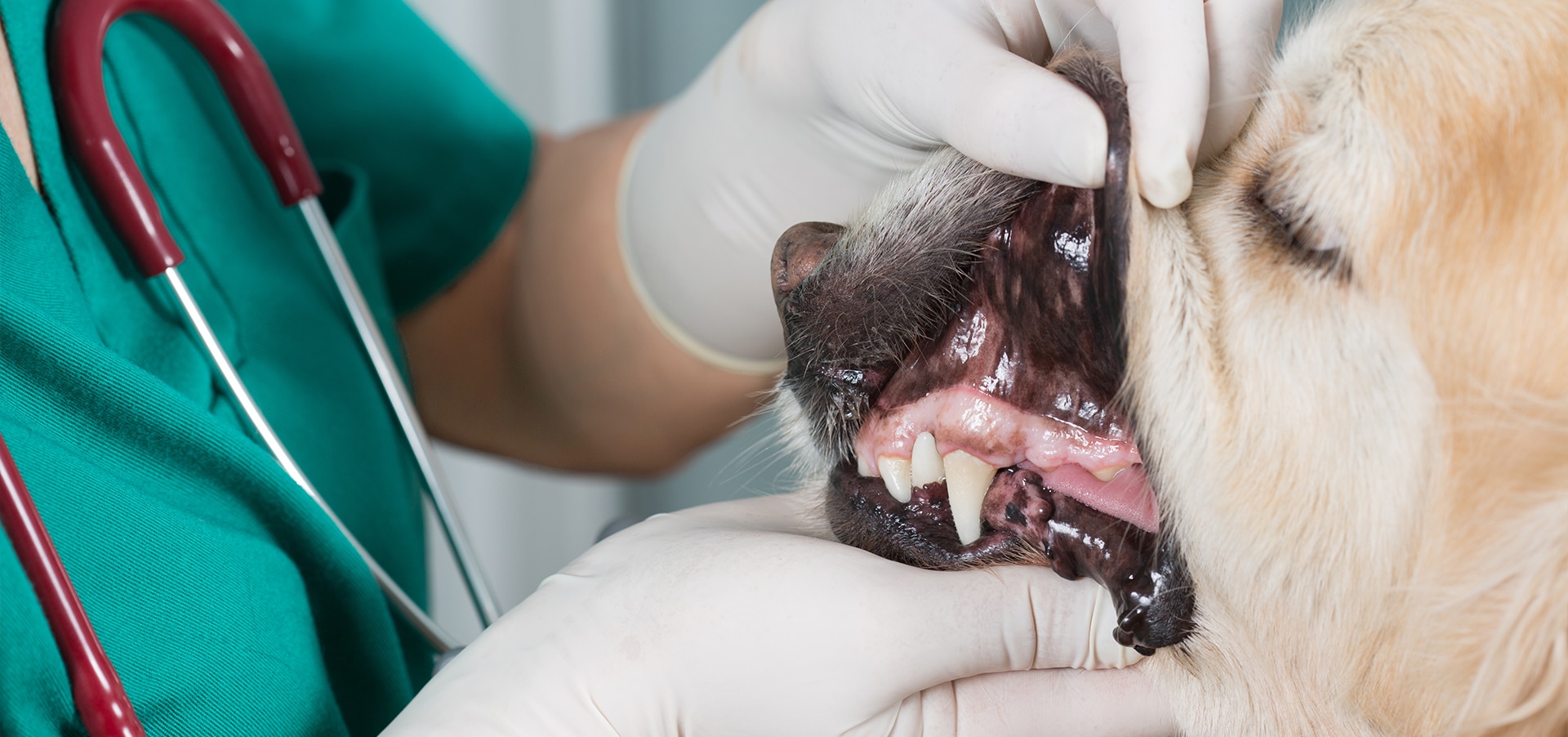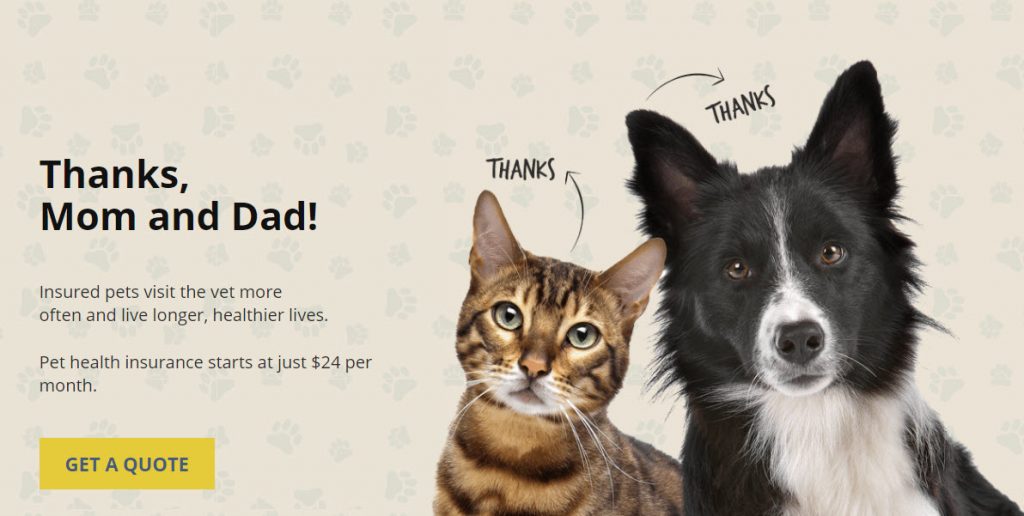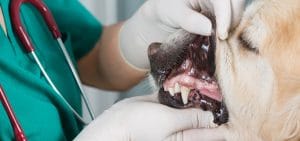Dental Problems in Dogs
Free Pet Insurance Comparison
Compare Quotes From Top Companies and Save
Secured with SHA-256 Encryption

Zach Fagiano
Licensed Insurance Broker
Zach Fagiano has been in the insurance industry for over 10 years, specializing in property and casualty and risk management consulting. He started out specializing in small businesses and moved up to large commercial real estate risks. During that time, he acquired property & casualty, life & health, and surplus lines brokers licenses. He’s now the Senior Vice President overseeing globa...
Licensed Insurance Broker
UPDATED: Feb 3, 2025
Pet Insurance U receives compensation from the third parties included on this site. This includes payment for clicks from our site to insurance providers’ sites and quote requests generated. Our rankings and reviews are not affected by payments from the insurance companies. The compensation we receive allows the site to be free and regularly updated. Our goal is to review every pet insurance provider, but not all companies are listed on the site.
And many of the companies we review do not pay us anything. We simply rate, compare and review their plan because we feel it will be valuable to you. Our reviews are guaranteed to be unbiased, professional and advertising compensation does not influence rankings.
We are a free online resource for anyone interested in learning more about pet insurance. Our goal is to be an objective, third-party resource for everything pet insurance related. We update our site regularly, and all content is reviewed by pet insurance experts.
UPDATED: Feb 3, 2025
Pet Insurance U receives compensation from the third parties included on this site. This includes payment for clicks from our site to insurance providers’ sites and quote requests generated. Our rankings and reviews are not affected by payments from the insurance companies. The compensation we receive allows the site to be free and regularly updated. Our goal is to review every pet insurance provider, but not all companies are listed on the site.
And many of the companies we review do not pay us anything. We simply rate, compare and review their plan because we feel it will be valuable to you. Our reviews are guaranteed to be unbiased, professional and advertising compensation does not influence rankings.
On This Page
Dogs can experience the same type of dental problems that humans do, from a cracked or broken tooth all the way to plaque buildup and periodontal disease.
Dogs could also suffer from toothaches or any number of dental issues and are programmed to hide their pain.
Your dog might be suffering from dental problems in silence unless you have his teeth regularly checked and keep an eye out for other symptoms of advanced dental problems.
Any of the below symptoms can be indicative of a dental problem.
Need Pet Insurance?
FACT: Pet insurance pays up to 90% of vet bills when your pet is sick or injured!
Symptoms of Dental Problems in Dogs
-
Red gums
- Bleeding gums or blood on a chew toy
- Bad breath
- Loose teeth
- Vocalization when eating or yawning
- Bumps or lumps in the mouth area
- Bloody or rope-like saliva
- Not wanting you to touch head area
- Problems picking up food
- Chewing on only one side of the mouth
- Sneezing and nasal discharge
Enter your ZIP code below to view companies that have cheap pet insurance rates.
Secured with SHA-256 Encryption
Common Dental Issues in Dogs
The most common dental problems in dogs are the following:
Cracked or Broken Teeth
Dogs can easily crack or break their teeth by either biting into something hard or even just a tooth cracking on its own. (For more information, read our “How to Stop Your Puppy From Biting“).
When a broken tooth becomes exposed, it can become infected if not treated properly.
Always check with your vet if you notice a cracked tooth even if your dog doesn’t seem to be in pain.
An x-ray will determine whether your dog needs a root canal if it seems to have been exposed.
Real Cost Savings from PetFirst Clients

Luna
PetFirst saved his parents
$6,712
A happy energetic Luna one morning couldn’t hold her food down. After months of multiple costly vet visits to specialists and an endoscopy, the problem was discovered and fixed. Luna put 22 pounds back on in no time and her parents were grateful for having PetFirst by their side to pay the bills.
Root Abscess
A root abscess occurs when the root becomes exposed to bacteria.
This can be a result of a crack or break or even periodontal disease.
Sometimes the result can be that your dog’s eyes look infected depending on the location of the tooth.
The gums might also be swollen if the bacteria has already spread.
It’s important to get to the vet immediately to assess the issue. A root canal might be done or your vet will try to remove the tooth and clean up the area before it becomes infected.
Periodontal Disease
Periodontal disease is the result of plaque buildup on your dog’s teeth.
The tartar buildup can affect the gums which will usually develop into gingivitis.
If periodontal disease isn’t treated, it can cause the gums to recede and eventually lose their function.
The usual sign of the periodontal disease is if your dogs’ gums look inflamed.
A professional teeth cleaning can help reverse periodontal disease if done before the disease has progressed too far.
Related: 10 Things You Must Know Before You Buy Pet Insurance
Loose Teeth
If your dog has a loose tooth that isn’t a result of an accident, it is usually from some trauma inside the mouth or even periodontal disease.
It could also be a sign of illness.
Always visit your vet who will eventually extract the tooth.
Dog Dental Problem Prevention
Prevention is the key to avoiding dental issues, and you can regularly brush your dog’s teeth at home or schedule a professional cleaning at the vet.
Your vet should also check your dog’s teeth at every regularly scheduled visit to catch potential problems at their earliest stages.
Chew toys are always helpful to keep your dogs’ teeth strong.
There are also many different types of wet and dry dog food that promote dental health.
The Cost of Dental Problems
Dental problems can also be the result of an accident, in which cases surgery may be needed to repair or replace teeth.
If your dog needs any kind of dental surgery, the cost can easily reach $2,000.
Even cleaning your dog’s teeth can cost anywhere from $750 to $1,000. The high expense of cleanings is due to the anesthesia used to sedate your dog during the procedure, which can be risky for certain breeds.
Most dog pet insurance plans cover dental problems due to accidents, but they usually don’t cover cleanings unless you opt for a wellness plan that includes teeth cleaning as part of the covered routine care.
For example, plans like Embrace will even cover up to $650 of the cost of periodontal disease.
Is it worth it purchase dental health insurance? It really depends on how much you think your dog will need it.
Enter your ZIP code below to view companies that have cheap pet insurance rates.
Secured with SHA-256 Encryption
Final Thoughts on Dog Teeth Problems
The best way to prevent any dental issue in your dog is to keep up with your annual vet visits to have your dog’s teeth checked.
It can help not only the dental issues that might have occurred but also check the overall condition of your dog.
And you can even try brushing your dog’s teeth at home to get rid of the tartar build-up. Just make sure to use a toothpaste that is specifically for that purpose.
Most dogs don’t mind when you brush them and it could be a good time to do a mouth check to make sure everything looks fine inside your dog’s mouth.
As they say, dental health is a good indicator of total health and we always want our dogs to be healthy!
For information on just some of the dog health issues that can occur, take a look our handy dog health glossary.
Other articles you may find helpful:
Is Exotic Pet Insurance Necessary?
The Best Pet Insurance By State
Fun Facts, Dog FAQ, And Unsolicited Dog Advice
5 Training Commands to Save Your Dog’s Life
The Ultimate Guide to Safe Foods for Dogs
We get it, your dog is like your child and when your puppy or dog has health problems it is scary. Luckily there is pet insurance companies that will help you pay for any veterinarian care they made need. Checkout the best puppy and dog pet insurance companies and learn about common puppy health issues and ailments in older pets.
Common Health Problems:
Chronic Active Hepatitis in Dogs
Cruciate Ligament Tear in Dogs
Degenerative Myelopathy | Spinal Cord Disease In Dogs
Dementia in Dogs | Canine Cognitive Dysfunction
Dog Comedones (Schnauzer Bumps)
Dog Diarrhea: What Can You Do To Help?
Gallbladder Obstruction in Dogs
Heart Murmurs In Dogs | How To Identify Them
Intervertebral Disc Disease In Dogs
Nasal Solar Dermatitis In Dogs
Progressive Retinal Atrophy In Dogs
The Dog Flu – Symptoms & Treatment for Canine Influenza

Frequently Asked Questions
What are the common dental problems in dogs?
Dogs can experience a range of dental issues, including cracked or broken teeth, root abscess, periodontal disease, and loose teeth.
How can I identify dental problems in my dog?
Look out for symptoms such as red gums, exposed broken teeth, swelling, and signs of pain. Regular dental check-ups and attention to behavioral changes can help identify issues.
What is periodontal disease in dogs?
Periodontal disease is a result of plaque buildup on a dog’s teeth, leading to gingivitis and potential gum recession. Professional teeth cleaning can help if caught early.
What are the common dental issues that may require veterinary intervention?
Cracked or broken teeth, root abscess, periodontal disease, and loose teeth may require veterinary attention to prevent complications.
How can I prevent dental problems in my dog?
Regularly brush your dog’s teeth, provide chew toys, and consider dental-friendly dog food. Schedule professional cleanings and have your vet check your dog’s teeth during regular visits.
What is the cost of treating dental problems in dogs?
Dental treatments for dogs, including surgery and cleanings, can be expensive, potentially reaching $2,000 or more. Dental insurance may cover some costs.
Do pet insurance plans cover dental problems in dogs?
Most pet insurance plans cover dental problems resulting from accidents, but routine cleanings are often not covered. Some wellness plans may include dental care.
Is dental health insurance worth it for dogs?
The necessity of dental health insurance depends on your dog’s needs. Assess your dog’s potential for dental issues and consider insurance coverage accordingly.
What steps can I take to maintain my dog’s dental health?
Regular vet check-ups, at-home teeth brushing, providing chew toys, and selecting dental-friendly dog food can contribute to maintaining your dog’s dental health.
Why is dental health important for dogs?
Dental health is a good indicator of overall health in dogs. Regular dental care can prevent pain, infections, and more severe complications, ensuring a healthier and happier life for your pet.
Enter your ZIP code below to view companies that have cheap pet insurance rates.
Secured with SHA-256 Encryption
Zach Fagiano
Licensed Insurance Broker
Zach Fagiano has been in the insurance industry for over 10 years, specializing in property and casualty and risk management consulting. He started out specializing in small businesses and moved up to large commercial real estate risks. During that time, he acquired property & casualty, life & health, and surplus lines brokers licenses. He’s now the Senior Vice President overseeing globa...
Licensed Insurance Broker
We are a free online resource for anyone interested in learning more about pet insurance. Our goal is to be an objective, third-party resource for everything pet insurance related. We update our site regularly, and all content is reviewed by pet insurance experts.

